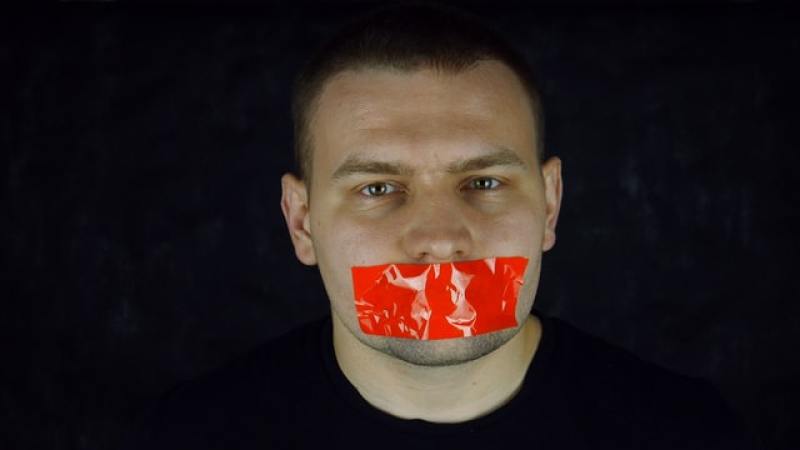
The recently held International Religious Freedom Summit in Washington D.C. highlighted the growing problems surrounding religious persecution all over the world, specifically in places such as China, Pakistan, Iraq, and so much more. During the event, religious freedom advocates, some of them victims of persecution themselves, took to the stage to highlight the struggle of millions more people around the world.
According to CBN News, up to 80% of people live in countries where religious activity is restricted by the government. The pandemic also ushered in a new type of control, as authorities locked up churches and prevented the faithful from gathering. At the IRF Summit, survivors of religious persecution and religious freedom advocates shared their stories and insights on the struggle.
Asia Bibi, who was falsely accused of blasphemy and was thrown in prison in Pakistan, spoke of her experience during the Summit.
"When I was in prison, I was very worried about my children and husband. I was not aware where they were and whether they were safe or not. At the same time, I had a hope in the Lord," Bibi said.
Bibi, who was released in 2016, expressed her desire to be a "voice for Christians in prison and in difficulties."
"Thanks to all of the brothers and sisters who prayed and fasted. Because of their prayers, I am now free," she said. "Christian brothers and sisters worked very hard for my freedom, very thankful to everyone from the bottom of my heart."
Sudanese Christian Mariam Ibraheem also shared her experience during the Summit. She was imprisoned and subsequently condemned to death in 2013 for her refusing to renounce her faith. Extremists called her an apostate.
Ibraheem was pregnant at the time of her incarceration, but she didn't know it at the time she was placed in prison. She gave birth to a baby girl, Maya, in May of 2014.
Tursunay Ziyawudun, an Uyghur Muslim who escaped the hands of Chinese authorities in the Xinjiang province of China, was also there at the Summit. She tearfully recounted her experience being abused and raped in a "re-education camp" for Uyghurs in China.
While she showed gratitude for her freedom, she expressed pain over the ones that she had left behind, saying that at times she believed "it would be better if I were back in the homeland with them even if it meant death."
"I'm so shocked that the world is just sitting by and watching. The Chinese government has absolutely no shame about this," Ziyawudun declared. Uyghurs like her who were not subjected to abuse in concentration camps were heavily watched through surveillance technology, which the Chinese communist regime is exporting to up to 80 countries to use on their own people for religious persecution purposes.
"That means that the government in those dystopian regimes, the bad actors can use that technology to monitor who is going to what church, saying what during the sermon," Nury Turkel, an American-Uighur Muslim who was also a victim of Chinese religious persecution, explained. Turkel is now a commissioner on the U.S. Commission on International Religious Freedom.
Adlay Kejjan, founder of Yazidi American Women Organization, believes that it is not enough that "people offer sympathy" because "there's people dying of hunger and thirst...dying of lack of medical aid." This is why International Christian Concern outlined the next steps to ensure that the rate of religious persecution decreases moving forward.
ICC is calling for the Biden administration to support the IRF ambassador as much as former President Donald Trump, who contributed to international religious freedom growing at an "unprecedented rate" because of the Trump administration's foreign policy priority, in which religious freedom "became a pivotal issue in American multilateral and bilateral policy making."
It also called on the Biden administration to "adopt the recommendations" of the IRF to "send a signal to countries around the world and emphasize the United States' commitment to global religious freedom." Lastly, the Biden administration has been called to "make IRF a standing issue in every multilateral and bilateral meeting" and ensure that the U.S. takes "every opportunity" to fight against governments that persecute its own people.
The summit was attended by former U.S. Secretary of State Mike Pompeo, Archbishop of New York and chairman of the United States Catholic Bishops' Conference (USCCB) Cardinal Timothy M. Dolan, and Speaker of the US House of Representatives Nancy Pelosi, among other prominent U.S. leaders.





























